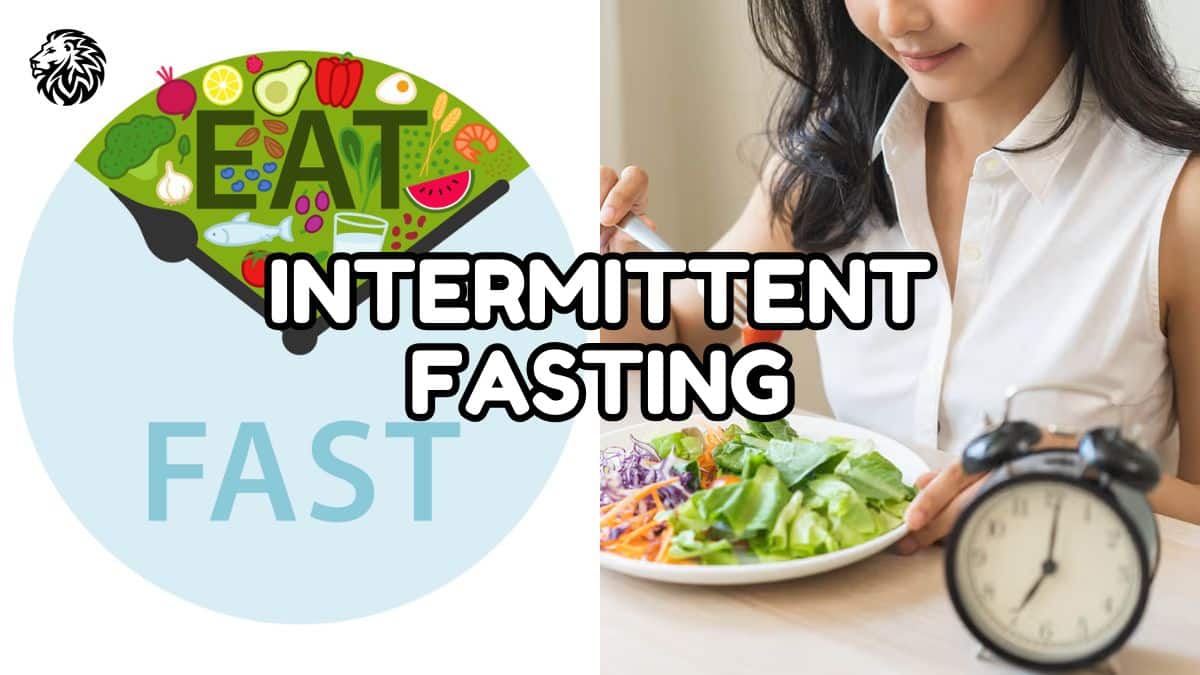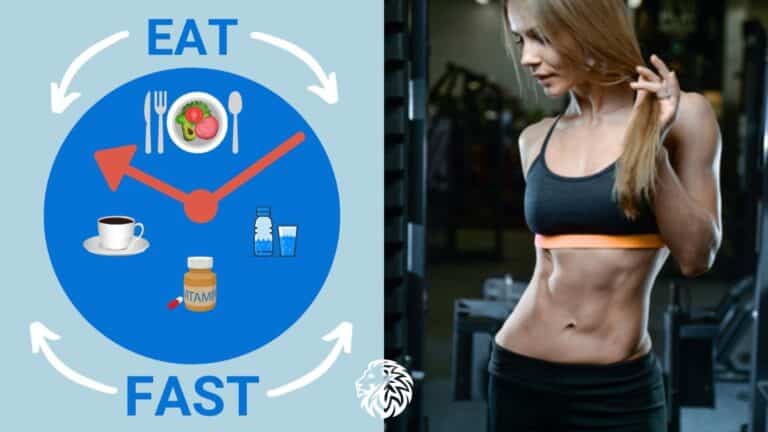Benefits of Intermittent Fasting
Weight Management Benefits
Intermittent fasting can be your secret weapon for managing weight. Think about it like this—you get to skip meals and actually see results! Whether it’s giving traditional calorie-cutting a run for its money or standing toe-to-toe with regular diet plans, it helps shed those pesky pounds. Back in 2017, a study put both methods head to head for a year, and guess what? They both worked wonders for weight loss (Medical News Today).
Even the “eat one day, feast another” style, known as alternate-day fasting, has shown it can match the good old low-calorie diets when it comes to trimming down.
| Method | Weight Loss Effectiveness |
|---|---|
| Intermittent Fasting | A rival to traditional calorie cutting |
| Alternate-Day Fasting | Packs a punch like a low-calorie diet |
Curious on how to kick-start your fasting routine? Dive into our intermittent fasting schedule for the details.
Metabolic Health Improvements
Intermittent fasting is more than just a weight-loss trick. It’s like giving your metabolism a much-needed break. It helps lower insulin resistance, which is crucial for tackling type 2 diabetes. A review in 2022 showed that by cutting down on meals, your insulin levels take a dive too.
Need a cherry on top? Fasting has also been seen to lower blood sugar levels, potentially steering you clear of diabetes type 2. Cross-referencing ten studies, it turns out fasting can drop fasting blood sugar by about 0.15 millimoles per liter.
| Study/Review | Outcome |
|---|---|
| 2022 Review | Lowered insulin resistance and sugar levels |
| Johns Hopkins Medicine Research | Manages weight and keeps diseases at bay |
If you’re flirting with the idea of hopping onto the fasting train, learn about the perks by visiting our intermittent fasting for weight loss page.
Getting to grips with all these goodies from intermittent fasting might make your decision-making easier. For a nudge in the right direction tailored to your mojo, check out our breakdown of intermittent fasting methods to find the one that clicks with your lifestyle.
Impact on Cardiovascular Health
Intermittent fasting’s got some serious street cred when it comes to giving your heart a boost. Here, we’re diving into a couple of perks: trimming down those triglyceride levels and cutting down the risk of heart woes.
Triglyceride Levels: The Weight Whole Day
So, triglycerides are basically fat floating around in your blood. Too much of it? Uh-oh, that’s when heart trouble is likely to pop up. But here’s the good news: intermittent fasting might help knock those levels down a peg and keep your ticker ticking (Medical News Today).
The science geeks are saying that by telling your body to munch on fat instead of carbs during fasting spells, you might see your triglycerides take a nosedive. In short, it’s like telling your blood fat to take a hike, which is great for your heart.
| Study | What’s Up with Triglycerides? |
|---|---|
| Medical News Today | Lowered triglycerides |
| American Heart Association | Better heart health signs |
| Healthline | Fewer heart disease red flags, including triglycerides |
Want more on the when-and-how of intermittent fasting? Check out our intermittent fasting schedule.
Slashing Cardiovascular Disease Risks
When it comes to dodging things like heart attacks and strokes, intermittent fasting seems to be earning its stripes. Specifically, time-restricted eating, a trendy version of fasting, is linked to some snazzy upgrades in heart-related stuff like blood pressure and cholesterol.
Here’s the rundown on how fasting can be your heart’s new best friend:
- Blood Pressure: Dropping it like it’s hot by leveling out insulin and shedding some pounds.
- Cholesterol Game: Upping the good (HDL) and ditching the bad (LDL).
- Inflammatory Crew: Kicking inflammation, a known heart disease buddy, to the curb.
Johns Hopkins peeps are behind this too, pointing out how fasting not only munches away at fat but also guards your body against nasty chronic things like heart disease. There you have it—fasting isn’t just a one-trick pony for heart health.
| Health Metric | Fasting’s Impact |
|---|---|
| Blood Pressure | Goes Down |
| HDL Cholesterol | Up It Goes |
| LDL Cholesterol | Takes a Dive |
| Inflammatory Markers | Falls |
Thinking about fasting mostly for your heart’s sake? Take a custom route and chat with a health pro.
Curious to dig deeper into what fasting can do and what to watch out for? Peek into our reads on intermittent fasting and fat loss and intermittent fasting side effects.
Potential Effects on Cancer
Intermittent fasting has got folks buzzing, especially when it comes to its possible impact on cancer risk and how tumors do their thing.
Cancer Risk Reduction
We’ve got some animal studies hinting that intermittent fasting might play a role in cutting down the cancer risk. By helping to shave off those extra pounds, intermittent fasting could contribute to a lower cancer risk. Even though we’re still figuring out all the details for humans, folks have already tied weight loss to less cancer risk.
Fasting can tweak various health markers like boosting insulin sensitivity and lowering inflammation, both of which are tied into cancer risk. Curious how else fasting might be helping you out? You might wanna peek at our piece on intermittent fasting and inflammation.
Delaying Tumor Onset
Research suggests that cutting back on munching times, like with fasting, might put a damper on tumors popping up too soon. In some animal labs, fasting has shown potential to slow down tumor development (Johns Hopkins Medicine). We’re still digging into how this works for humans, but the early signs are looking good.
| Study Type | Findings | Reference |
|---|---|---|
| Animal Studies | Tumors Took Longer to Show | Johns Hopkins Medicine |
| Human Studies (Ongoing) | No Solid Answers Yet | Medical News Today |
The hopeful role of intermittent fasting in fending off cancer might pave a new path for managing weight and boosting long-term health. For more cool deets on how fasting might pump up your wellness game, visit our full breakdown on intermittent fasting and autophagy.
If fasting is a new concept for you, easing into it with the right intermittent fasting schedule could help you settle into this lifestyle tweak nicely. And don’t forget to have a chat with your healthcare person to nail down what fits your health situation best. Dive into more about the perks and pointers with our guide on intermittent fasting for beginners.
Lifespan and Longevity
Animal Studies’ Findings
Critters in labs are giving us some juicy clues about how skipping meals every now and then might help us stick around longer. Studies suggest that playing around with intermittent fasting can be like going on a long-term diet without actually counting calories, which might just add a few extra years to our lives. Take those mice, for instance—they were put on a feast-fast routine every other day and ended up living 13% longer. Can you imagine being a mouse in those trials?
| Study | Animal | Fasting Regimen | Lifespan Increase |
|---|---|---|---|
| Medical News Today | Mice | Every-other-day | 13% |
| Healthline | Mice | Every-other-day | 13% |
Besides living longer, these mice also managed to dodge age-related troubles like fatty liver and sneaky cancers. We’re still waiting on more research to see if humans can get in on this action, but it’s looking promising for those curious about the benefits of intermittent fasting. If you’re the type who loves diving deep into health geek stuff, check out our section on intermittent fasting and inflammation for more.
Extended Lifespan Effects
Fasting off and on doesn’t just seem to push our expiration date a bit further; it might also shape us into healthier versions of ourselves. Picture a leaner body and a brain that stays sharp as a tack. Some brainy folks from the New England Journal of Medicine let us in on a little secret—intermittent fasting could be your ticket to stretching out the good years and sprucing up that body and mind.
Research is shouting out about how fasting can flip the script on obesity, type 2 diabetes, and heart disease—all those leaders of the unhealthy lifestyle club. So if you’re curious about this fascinating dance between metabolism and fasting, check out our article on intermittent fasting and metabolism.
If you’re thinking of hopping on this intermittent fasting bandwagon, it’s a good idea to pick what suits your life groove. Have a little chat with your doc to sort out a fasting schedule that won’t have you running for the hills. And if you’re a newbie at this whole not-eating thing, our guide on intermittent fasting for beginners could be your best friend through the trial runs.
Health Risks and Side Effects
Trying out intermittent fasting might seem like a great way to drop a few pounds, but it’s a good idea to get the scoop on any hiccups you might face. Let’s talk about some of the possible bumps in the road you should know about if you’re thinking of giving it a whirl.
Initial Side Effects
Kicking off intermittent fasting? You might feel like life’s throwing a few curveballs. No worries, these usually chill out in about a month. But it’s smart to have a heads-up so you can tackle them head-on. Here’s the usual lineup of side effects you might bump into:
- Hunger: Get ready for a rumbling tummy.
- Irritability: You might snap a bit more than usual.
- Fatigue: Feeling like you need an extra nap? Totally normal.
- Headaches: Ten to one, you’ll find aspirin becoming your new best friend.
The word from the Mayo Clinic is that these should ease up as your body gets with the program. If they stick around longer than a bad first date, you might wanna tweak your fasting schedule or chat with your doc about it.
| Side Effect | Description |
|---|---|
| Hunger | That pesky hunger ain’t playing nice |
| Irritability | More grumpy cat, less zen monk |
| Fatigue | Slow and steady, but in a yawn-y way |
| Headaches | Annoyingly frequent noggin pains |
Safety Concerns and Considerations
Intermittent fasting isn’t everyone’s cup of tea. Some folks should maybe give it a miss or be super careful due to potential health issues. Here’s what to keep in mind:
- Medications and Health Conditions: Skipping meals can be like playing with fire if you’ve got certain health conditions like diabetes, or are popping meds for blood pressure or heart stuff. Better safe than sorry—check with your doc first.
- Older Adults: For those with a few more birthdays behind them, fasting could lead to losing too much weight, which might mess with bones, immune hustle, and energy vibes. Plus, who knows what we don’t know about fasting’s effect on this age group yet (Harvard Health Publishing).
- Post-Fasting Eating Habits: Being super hungry after fasting might make you want to eat like it’s Thanksgiving every day, which could slow your metabolism or kick your hunger into overdrive.
To sidestep these worries, you might want to try something like time-restricted eating, which means eating during a set part of your day. Chatting with your healthcare provider about what might fit your life best wouldn’t hurt either.
For the lowdown on starting intermittent fasting off on the right foot, check out our guide on intermittent fasting for beginners and see what other intermittent fasting methods could work for you.
Consultation and Guidelines
Your Unique Plan
When you think about trying intermittent fasting, it’s super important to consider your own needs and way of life. This isn’t some one-size-fits-all situation. Everyone’s got their quirks and tweaks that can seriously change how it goes for you. Kicking off with something straightforward, like a 12 to 14-hour fast, could be just the ticket for getting started. Pair that fast with good, nutritious foods that give your body a helpful boost.
For newbies, our beginner’s guide to intermittent fasting is a nifty resource. And hey, trying out some fasting apps could be the buddy you need to keep track and stick it out.
Check with the Doc
Intermittent fasting might be cool for many folks, but don’t skip talking to your doctor before diving in, especially if you’ve got health issues or take certain meds (Mayo Clinic). Stuff like diabetes, kidney stones, and acid reflux need a professional nod before you give it a whirl. Also, if you’re pregnant or breastfeeding, it’s a must to check in.
Skipping meals and going low on calories can be risky for people on meds for blood pressure or heart issues. Your doc’s advice makes sure fasting won’t mess with your health.
Peek into our pieces on fasting risks and fasting side effects for more scoop.
Chat Before You Start
Before you leap into fasting, here’s a handy list of stuff to chat over with your healthcare buddy:
| Whatcha Discussing | Details |
|---|---|
| Your Health Now | Issues like diabetes, heart disease, kidney stones? |
| Med Crew | Taking anything for blood pressure, heart issues, or sugar? |
| Timing’s Everything | Best fasting schedules (like 12:12, 16:8, or maybe 24-hour fasts) |
| Food Stuff | Nutrient needs, meal plans |
| What’s the Catch? | Taming hunger, keeping moods steady, energy slumps |
Your healthcare team can steer you right and cook up a fasting recipe that’s healthy and fits like a glove.
Dig into more about fitting fasting into a healthy groove with our reads on fasting techniques, schedules, and fasting with workouts.







